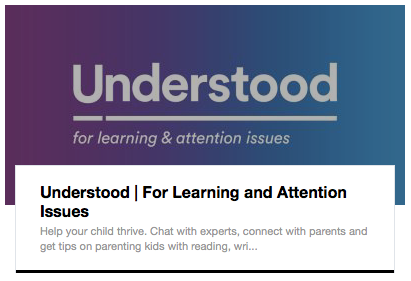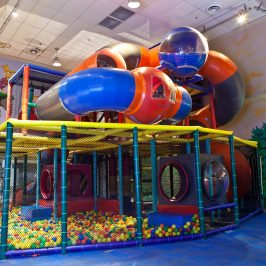by Kristen Callow

Everyone — especially kids — can have challenges with restlessness, paying attention or managing impulsive behaviour from time to time. But for people with ADHD, these types of challenges are so pervasive and ongoing that they can interfere significantly with daily functioning at school, at home, at work, and socially. You can learn more about the signs and different presentations of ADHD here: http://www.cdc.gov/ncbddd/adhd/diagnosis.html. Even though ADHD is one of the most common neurodevelopmental (brain based) conditions in the world, it is also one that is plagued by misunderstanding and misinformation. With ADHD affecting at least 5% of children in Australia — and many teens and adults as well — you can rest assured that many families in our area are touched by ADHD in some way. Our family is one of them.
As the parent of a child with ADHD, I can’t claim to be an expert. However, I have come to appreciate how important it is to have accurate information about ADHD. For the past several years, I have been actively involved in a number of communities and advocacy groups across Australia that include fellow parents of kids with ADHD, including many parents who have ADHD themselves, educators, and developmental specialists. In fact, a friend and I created a Facebook-based parent support group when we realised how many local parents were looking for a place to privately connect, share support and practical advice, and help refute some of the misconceptions about ADHD
October is ADHD Awareness Month (http://www.adhdawarenessmonth.org/), and this year’s theme is “Knowing Is Better: ADHD Across The Life Span.” In that spirit, I’d like to share a few important lessons I’ve learnt from being so deeply involved with various ADHD communities.
There is a lot of misinformation floating around about ADHD, especially with regards to medication. Unfortunately, inaccurate, stigmatising, and/or sensationalist misinformation about ADHD can prevent parents from getting timely answers, effective treatments, and appropriate accommodations for their child — or themselves. A lot of the scaremongering is directed toward ADHD medications, even though these medications are among the most researched in the world and provide far more benefits than side effects for the vast majority of people who use them. Click-bait headlines about “Zombie kids on ADHD drugs” attract more attention than the many kids who are quietly thriving due to proper treatment and support. Sadly, when misinformation or grossly skewed negative information is promoted, it can fuel further misunderstanding about people with ADHD and exclusion by family, friends, and the broader community. For these reasons, it’’s vital to get information about ADHD from credible sources — like developmental specialists with deep ADHD expertise and reputable, evidence-based organisations — and it’s also important to listen to and learn from those who actually have ADHD.
I hope that the links below help other families in our community who have a loved one with ADHD or who simply want to learn more. If any parents are keen to be linked into the private support group I mentioned, please contact me via the Ryde District Mums Facebook group or the administrators of the group. You will be warmly welcomed!
Valuable ADHD Resources (list not exhaustive)
- The Raising Children Network, reflecting Australia’s leading childhood agencies, has some very good general information about ADHD:
http://raisingchildren.net.au/articles/adhd.html
- ADDults With ADHD (NSW) is a Ryde District-based charity dedicated to improving the lives of adults dealing with ADHD in themselves, their family, their friends and their clients. This outstanding organisation has a free helpline, an ADHD centre based in North Ryde and is a leader in NSW in providing information and support for adults with ADHD. https://www.adultadhd.org.au/ The National Resource Center on ADHD, run by CHADD (Children & Adults With ADHD) in the U.S., is one of the best known, evidence based clearinghouses on ADHD information. Please note that some of the materials are U.S.-centric but many are universal. The NRC site is filled with an array of useful information.
http://www.chadd.org/NRC.aspx
- The Child Mind Institute is a U.S. not-for-profit, evidence-based organisation dedicated to supporting the mental health needs of children through research and advocacy. They do not accept funding from pharmaceutical companies. They have a range of helpful materials on ADHD, including well balanced and thorough information on medication. Please note that not all of the medications available in the U.S. are available here in Australia.
http://childmind.org/topics/disorders/attention-deficit-hyperactivity-disorder/
- Understood is a U.S based consortium of 15 not-for-profit organisations dedicated to supporting children with learning and attention issues:
Understood | For Learning and Attention Issues
















Leave a Reply